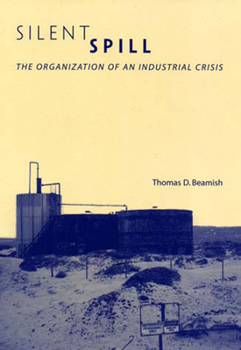Silent Spill: The Organization of an Industrial Crisis
Select Format
Select Condition 
Book Overview
Taking a sociological perspective, Thomas Beamish examines the organizational culture of the Unocal Corporation (whose oil fields produced the leakage), the interorganizational response of regulatory agencies, and local interpretations of the event. He applies notions of social organization, social stability, and social inertia to the kind of environmental degradation represented by the Guadalupe spill. More important, he uses the Guadalupe Dunes case as the basis for a broader study of environmental "blind spots." He argues that many of our most pressing pollution problems go unacknowledged because they do not cause large-scale social disruption or dramatic visible destruction of the sort that triggers responses. Finally, he develops a model of social accommodation that helps explain why human systems seem inclined to do nothing as trouble mounts.
Related Subjects
Business Business & Finance Business & Investing Earth Sciences Economics Energy & Mining Engineering Engineering & Transportation Environment Environmental Environmental Economics Environmental Science Environmental Studies Industrial Industries & Professions Management & Leadership Oil & Energy Politics & Government Politics & Social Sciences Pollution Public Affairs & Policy Science Science & Math Science & Scientists Science & Technology Social Science Social Sciences Social Services & Welfare Sociology Textbooks




